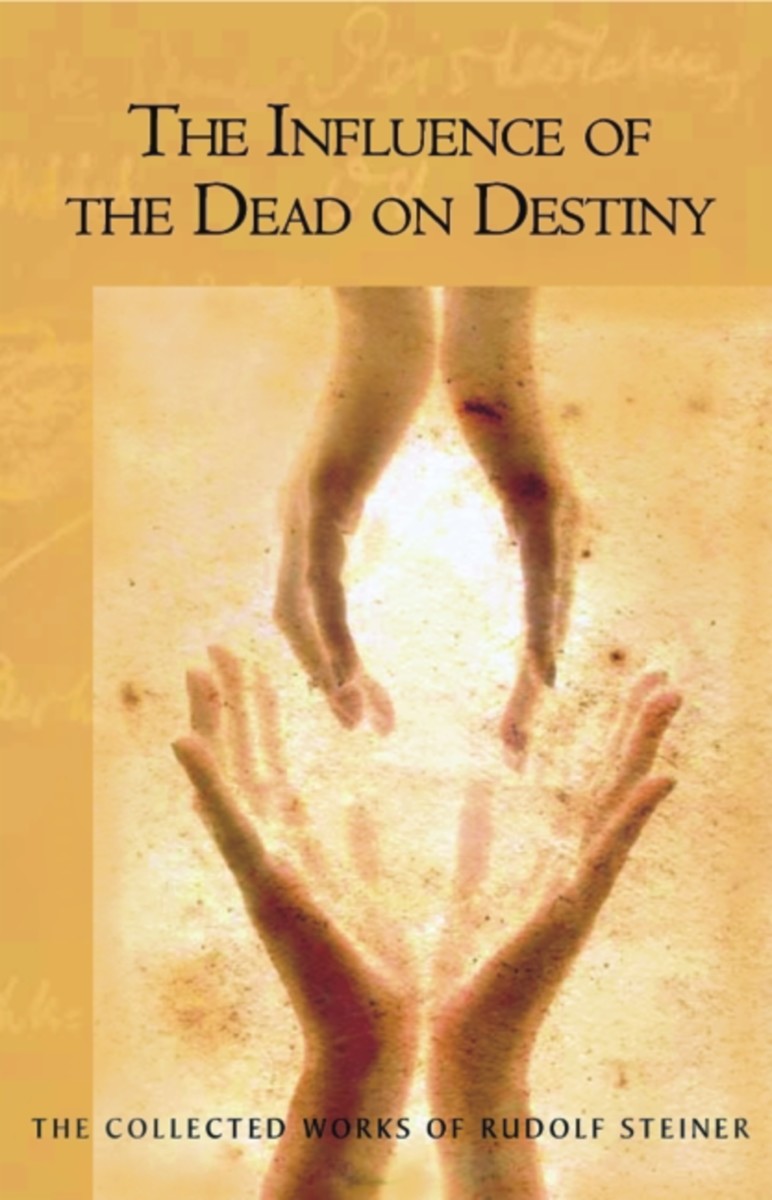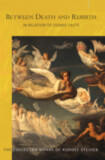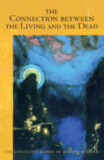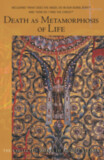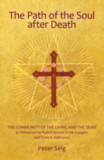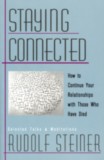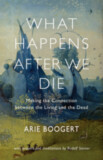The Influence of the Dead on Destiny
(CW 179)
- Publisher
SteinerBooks - Published
15th December 2007 - ISBN 9780880106146
- Language English
- Pages 184 pp.
- Size 6" x 9"
8 lectures, Dornach, December 2–22, 1917 (CW 179)
With a single observation, Rudolf Steiner can sometimes outline a radically new reality that changes everything. Here, he introduces these extraordinary lectures by proposing that the boundary between the physical and spiritual worlds “lies right in the middle of the human being.”
One indication of this boundary may be found in what science mistakenly differentiates as the sensory and motor nerves, which for Steiner, do not represent two kinds of nerve functions, but rather a gap, or interruption, through which soul, spiritual reality incarnates, and through which the spiritual world participates in the natural, physical world. This gap allows us to experience inwardly and take part in not only the outer world, but also in the spiritual world and the world of those who have died. It also functions as the boundary between the conscious and subconscious.
The lectures that loosely follow this introduction go into the vast field of the dead and the spiritual worlds and the many ways that these influence and become involved in human and earthly life. Steiner shows how the living and the dead (along with the whole spiritual world) are intimately interrelated. History itself is the result of this interweaving activity, whose influences “flow right into our daily lives.” Realizing “this feeling of being together with the dead” is essential for human development.
The reader’s understanding of the influence of those who have died on human destiny deepens with each lecture, as Steiner shows how this reality becomes existential—a matter of personal decision—through the Archangel Michael’s great action in 1979, when he assumed responsibility for the guidance of humankind.
Thus, together with Michael and the whole spiritual world, those who have died call upon us to change our consciousness.
The Influence of the Dead on Destiny is the first complete English translation from the German of Geistige Wesen und Ihre Wirkung Geschichtliche Notwendigkeit und Freiheit. Schicksalseinwirkungen aus der Welt der Toten. Band III (GA 179).
Rudolf Steiner
Rudolf Steiner (b. Rudolf Joseph Lorenz Steiner, 1861–1925) was born in the small village of Kraljevec, Austro-Hungarian Empire (now in Croatia), where he grew up. As a young man, he lived in Weimar and Berlin, where he became a well-published scientific, literary, and philosophical scholar, known especially for his work with Goethe’s scientific writings. At the beginning of the twentieth century, he began to develop his early philosophical principles into an approach to systematic research into psychological and spiritual phenomena. Formally beginning his spiritual teaching career under the auspices of the Theosophical Society, Steiner came to use the term Anthroposophy (and spiritual science) for his philosophy, spiritual research, and findings. The influence of Steiner’s multifaceted genius has led to innovative and holistic approaches in medicine, various therapies, philosophy, religious renewal, Waldorf education, education for special needs, threefold economics, biodynamic agriculture, Goethean science, architecture, and the arts of drama, speech, and eurythmy. In 1924, Rudolf Steiner founded the General Anthroposophical Society, which today has branches throughout the world. He died in Dornach, Switzerland.


